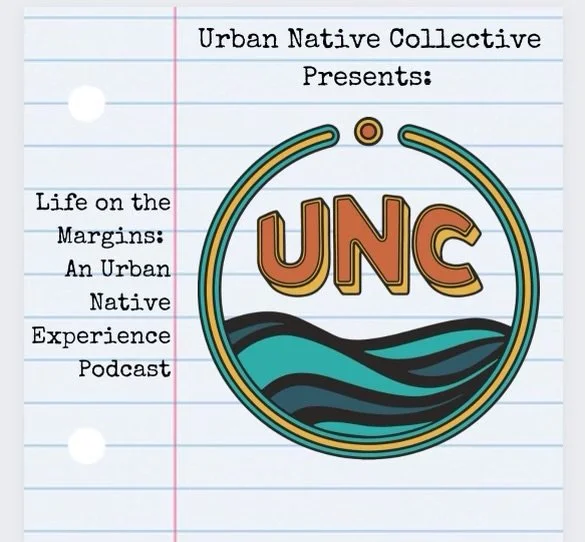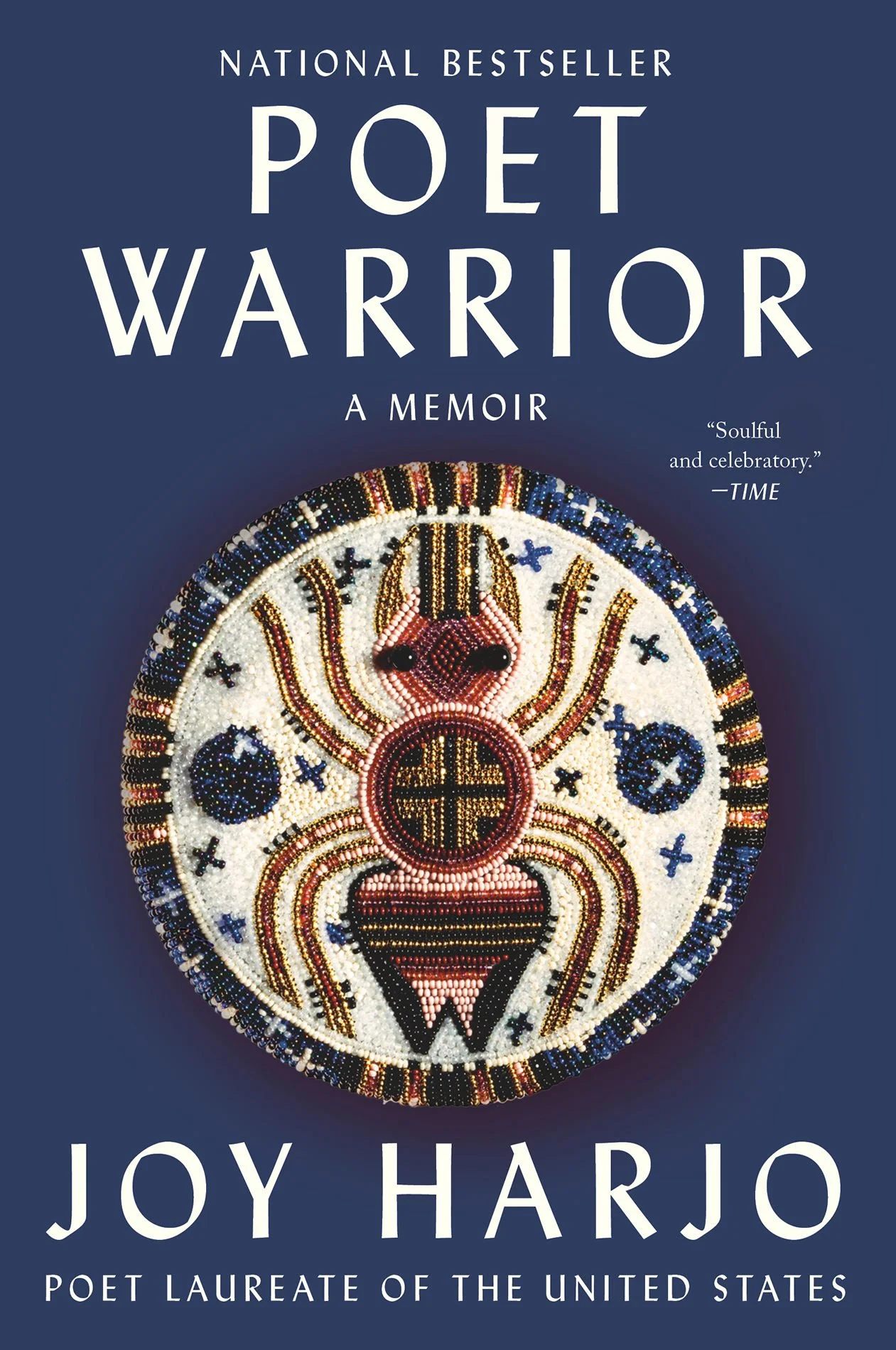The Indigenous Field Guide (IFG) is a centralized guide for individuals and organizations. IFG provides public education to prevent the damage of nonrenewable cultural resources, address access concerns for public and private lands, and create an online platform to amplify and integrate Indigenous worries regarding cultural land resources. The IFG will connect individuals and organizations with Indigenous guides, underrepresented communities, and advisors who are able to help ethically navigate outdoor spaces.
Life on the Margins: An Urban Native Experience Podcast
Call Her Aunty
The Warrior Life
Toasted Sister Podcast
Hosted By Andy Murphy
After contact, Indigenous foodways and knowledge were devastated, nearly destroyed and replaced with foods that are far from the people. So today, I’m talking to Native chefs and foodies about what Indigenous cuisine is, where it comes from, where it’s headed and how it’s used to connect them and their communities to their origins and traditions.
This podcast is hosted by me, Andi Murphy. I started the Toasted Sister Podcast in January 2017 and talked with dozens of Indigenous people across the country about food. This is an award-winning podcast. It got first place for general excellence (in the professional division II) in radio and podcasting at the Native American Journalists Association 2019 National Native Media awards.
This Land
Indigenous Urbanism
All My Relations
Hosted By Matika Wilbur, Adrienne Keene
All My Relations is a podcast hosted by Matika Wilbur (Swinomish and Tulalip) and Adrienne Keene (Cherokee Nation) to explore our relationships— relationships to land, to our creatural relatives, and to one another.
Each episode invites guests to delve into a different topic facing Native peoples today as we keep it real, play games, laugh a lot, and even cry sometimes.
This space is for everyone—for Native folks to be joyous, think critically about issues facing our communities, hear new perspectives, look into a mirror of self, and for non-Native folks to listen and learn
Ilimpa'chi' Chikasaw Cookbook
By JoAnn Ellis, Vicki Penner
Recipes, reminiscences and lessons in Chickasaw life are the main ingredients for ilimpa’chi’ (We’re Gonna Eat!): A Chickasaw Cookbook, the first cookbook produced by the Chickasaw Press. Chickasaw cooks JoAnn Ellis and Vicki Penner selected recipes and illuminated them with glimpses and scenes from growing up around kitchens and outdoor cooking fires. ilimpa’chi’ also features a glossary of Chickasaw terms and phrases taken from traditions of food and family.
Fire Keepers Daughter
By Angeline Boulley
Eighteen-year-old Daunis Fontaine has never quite fit in, both in her hometown and on the nearby Ojibwe reservation. She dreams of a fresh start at college, but when family tragedy strikes, Daunis puts her future on hold to look after her fragile mother. The only bright spot is meeting Jamie, the charming new recruit on her brother Levi’s hockey team.
Yet even as Daunis falls for Jamie, she senses the dashing hockey star is hiding something. Everything comes to light when Daunis witnesses a shocking murder, thrusting her into an FBI investigation of a lethal new drug.
Reluctantly, Daunis agrees to go undercover, drawing on her knowledge of chemistry and Ojibwe traditional medicine to track down the source. But the search for truth is more complicated than Daunis imagined, exposing secrets and old scars. At the same time, she grows concerned with an investigation that seems more focused on punishing the offenders than protecting the victims.
Now, as the deceptions―and deaths―keep growing, Daunis must learn what it means to be a strong Anishinaabe kwe (Ojibwe woman) and how far she’ll go for her community, even if it tears apart the only world she’s ever known.
There There
By Enrique Salmón
Among them is Jacquie Red Feather, newly sober and trying to make it back to the family she left behind. Dene Oxendene, pulling his life together after his uncle’s death and working at the powwow to honor his memory. Fourteen-year-old Orvil, coming to perform traditional dance for the very first time. They converge and collide on one fateful day at the Big Oakland Powwow and together this chorus of voices tells of the plight of the urban Native American—grappling with a complex and painful history, with an inheritance of beauty and spirituality, with communion and sacrifice and heroism
A book with “so much jangling energy and brings so much news from a distinct corner of American life that it’s a revelation” (The New York Times). It is fierce, funny, suspenseful, and impossible to put down--full of poetry and rage, exploding onto the page with urgency and force. There There is at once poignant and unflinching, utterly contemporary and truly unforgettable.
The Inconvenient Indian
By Thomas King
In The Inconvenient Indian, Thomas King offers a deeply knowing, darkly funny, unabashedly opinionated, and utterly unconventional account of Indian–White relations in North America since initial contact. Ranging freely across the centuries and the Canada–U.S. border, King debunks fabricated stories of Indian savagery and White heroism, takes an oblique look at Indians (and cowboys) in film and popular culture, wrestles with the history of Native American resistance and his own experiences as a Native rights activist, and articulates a profound, revolutionary understanding of the cumulative effects of ever-shifting laws and treaties on Native peoples and lands.
Suffused with wit, anger, perception, and wisdom, The Inconvenient Indian is at once an engaging chronicle and a devastating subversion of history, insightfully distilling what it means to be “Indian” in North America. It is a critical and personal meditation that sees Native American history not as a straight line but rather as a circle in which the same absurd, tragic dynamics are played out over and over again. At the heart of the dysfunctional relationship between Indians and Whites, King writes, is land: “The issue has always been land.” With that insight, the history inflicted on the indigenous peoples of North America—broken treaties, forced removals, genocidal violence, and racist stereotypes—sharpens into focus. Both timeless and timely, The Inconvenient Indian ultimately rejects the pessimism and cynicism with which Natives and Whites regard one another to chart a new and just way forward for Indians and non-Indians alike.
Calling for a Blanket Dance
By Oscar Hokeah
Oscar Hokeah’s electric debut takes us into the life of Ever Geimausaddle, whose family—part Mexican, part Native American—is determined to hold onto their community despite obstacles everywhere they turn. Ever’s father is injured at the hands of corrupt police on the border when he goes to visit family in Mexico, while his mother struggles both to keep her job and care for her husband. And young Ever is lost and angry at all that he doesn’t understand, at this world that seems to undermine his sense of safety. Ever’s relatives all have ideas about who he is and who he should be. His Cherokee grandmother, knowing the importance of proximity, urges the family to move across Oklahoma to be near her, while his grandfather, watching their traditions slip away, tries to reunite Ever with his heritage through traditional gourd dances. Through it all, every relative wants the same: to remind Ever of the rich and supportive communities that surround him, there to hold him tight, and for Ever to learn to take the strength given to him to save not only himself but also the next generation.
How will this young man visualize a place for himself when the world hasn’t made room for him to start with? Honest, heartbreaking, and ultimately uplifting, Calling for a Blanket Dance is the story of how Ever Geimausaddle finds his way home.
Moon of the Crusted Snow
By Waubgeshig Rice
With winter looming, a small northern Anishinaabe community goes dark. Cut off, people become passive and confused. Panic builds as the food supply dwindles. While the band council and a pocket of community members struggle to maintain order, an unexpected visitor arrives, escaping the crumbling society to the south. Soon after, others follow.
The community leadership loses its grip on power as the visitors manipulate the tired and hungry to take control of the reserve. Tensions rise and, as the months pass, so does the death toll due to sickness and despair. Frustrated by the building chaos, a group of young friends and their families turn to the land and Anishinaabe tradition in hopes of helping their community thrive again. Guided through the chaos by an unlikely leader named Evan Whitesky, they endeavor to restore order while grappling with a grave decision.
Blending action and allegory, Moon of the Crusted Snow upends our expectations. Out of catastrophe comes resilience. And as one society collapses, another is reborn.
Heart Berries: A Memoir
By Terese Marie Mailhot
A powerful, poetic memoir of an Indigenous woman's coming of age on the Seabird Island Band in the Pacific Northwest—this New York Times bestseller and Emma Watson Book Club pick is “an illuminating account of grief, abuse and the complex nature of the Native experience . . . at once raw and achingly beautiful (NPR).
Having survived a profoundly dysfunctional upbringing only to find herself hospitalized and facing a dual diagnosis of post traumatic stress disorder and bipolar II disorder, Terese Marie Mailhot is given a notebook and begins to write her way out of trauma. The triumphant result is Heart Berries, a memorial for Mailhot's mother, a social worker and activist who had a thing for prisoners; a story of reconciliation with her father―an abusive drunk and a brilliant artist―who was murdered under mysterious circumstances; and an elegy on how difficult it is to love someone while dragging the long shadows of shame.
Mailhot trusts the reader to understand that memory isn't exact, but melded to imagination, pain, and what we can bring ourselves to accept. Her unique and at times unsettling voice graphically illustrates her mental state. As she writes, she discovers her own true voice, seizes control of her story, and, in so doing, reestablishes her connection to her family, to her people, and to her place in the world.
Poet Warrior: A Memoir
By Jo Harjo
Three-term poet laureate Joy Harjo offers a vivid, lyrical, and inspiring call for love and justice in this contemplation of her trailblazing life.
Joy Harjo, the first Native American to serve as U.S. poet laureate, invites us to travel along the heartaches, losses, and humble realizations of her "poet-warrior" road. A musical, kaleidoscopic, and wise follow-up to Crazy Brave, Poet Warrior reveals how Harjo came to write poetry of compassion and healing, poetry with the power to unearth the truth and demand justice.
Harjo listens to stories of ancestors and family, the poetry and music that she first encountered as a child, and the messengers of a changing earth—owls heralding grief, resilient desert plants, and a smooth green snake curled up in surprise. She celebrates the influences that shaped her poetry, among them Audre Lorde, N. Scott Momaday, Walt Whitman, Muscogee stomp dance call-and-response, Navajo horse songs, rain, and sunrise. In absorbing, incantatory prose, Harjo grieves at the loss of her mother, reckons with the theft of her ancestral homeland, and sheds light on the rituals that nourish her as an artist, mother, wife, and community member.
Moving fluidly between prose, song, and poetry, Harjo recounts a luminous journey of becoming, a spiritual map that will help us all find home. Poet Warrior sings with the jazz, blues, tenderness, and bravery that we know as distinctly Joy Harjo.
The Seed Keeper
By Diane Wilson
Rosalie Iron Wing has grown up in the woods with her father, Ray, a former science teacher who tells her stories of plants, of the stars, of the origins of the Dakhóta people. Until, one morning, Ray doesn’t return from checking his traps. Told she has no family, Rosalie is sent to live with a foster family in nearby Mankato—where the reserved, bookish teenager meets rebellious Gaby Makespeace, in a friendship that transcends the damaged legacies they’ve inherited.
On a winter’s day many years later, Rosalie returns to her childhood home. A widow and mother, she has spent the previous two decades on her white husband’s farm, finding solace in her garden even as the farm is threatened first by drought and then by a predatory chemical company. Now, grieving, Rosalie begins to confront the past, on a search for family, identity, and a community where she can finally belong. In the process, she learns what it means to be descended from women with souls of iron—women who have protected their families, their traditions, and a precious cache of seeds through generations of hardship and loss, through war and the insidious trauma of boarding schools.
Weaving together the voices of four indelible women, The Seed Keeper is a beautifully told story of reawakening, of remembering our original relationship to the seeds and, through them, to our ancestors.
The Sentence
Louise Erdrich's latest novel, The Sentence, asks what we owe to the living, the dead, to the reader and to the book. A small independent bookstore in Minneapolis is haunted from November 2019 to November 2020 by the store's most annoying customer. Flora dies on All Souls' Day, but she simply won't leave the store. Tookie, who has landed a job selling books after years of incarceration that she survived by reading "with murderous attention," must solve the mystery of this haunting while at the same time trying to understand all that occurs in Minneapolis during a year of grief, astonishment, isolation, and furious reckoning.
The Sentence begins on All Souls' Day 2019 and ends on All Souls' Day 2020. Its mystery and proliferating ghost stories during this one year propel a narrative as rich, emotional, and profound as anything Louise Erdrich has written
The Other Trail of Tears: The Removal of the Ohio Indians
By Mary Stockwell (non-native)
The Story of the Longest and Largest Forced Migration of Native Americans in American History
The Indian Removal Act of 1830 was the culmination of the United States’ policy to force native populations to relocate west of the Mississippi River. The most well-known episode in the eviction of American Indians in the East was the notorious “Trail of Tears” along which Southeastern Indians were driven from their homes in Georgia, Alabama, and Mississippi to reservations in present-day Oklahoma. But the struggle in the South was part of a wider story that reaches back in time to the closing months of the War of 1812, back through many states—most notably Ohio—and into the lives of so many tribes, including the Delaware, Seneca, Shawnee, Ottawa, and Wyandot (Huron). They, too, were forced to depart from their homes in the Ohio Country to Kansas and Oklahoma. The Other Trail of Tears: The Removal of the Ohio Indians by award-winning historian Mary Stockwell tells the story of this region’s historic tribes as they struggled following the death of Tecumseh and the unraveling of his tribal confederacy in 1813. At the peace negotiations in Ghent in 1814, Great Britain was unable to secure a permanent homeland for the tribes in Ohio setting the stage for further treaties with the United States and encroachment by settlers. Over the course of three decades the Ohio Indians were forced to move to the West, with the Wyandot people ceding their last remaining lands in Ohio to the U.S. Government in the early 1850s. The book chronicles the history of Ohio’s Indians and their interactions with settlers and U.S. agents in the years leading up to their official removal, and sheds light on the complexities of the process, with both individual tribes and the United States taking advantage of opportunities at different times. It is also the story of how the native tribes tried to come to terms with the fast pace of change on America’s western frontier and the inevitable loss of their traditional homelands. While the tribes often disagreed with one another, they attempted to move toward the best possible future for all their people against the relentless press of settlers and limited time.


















